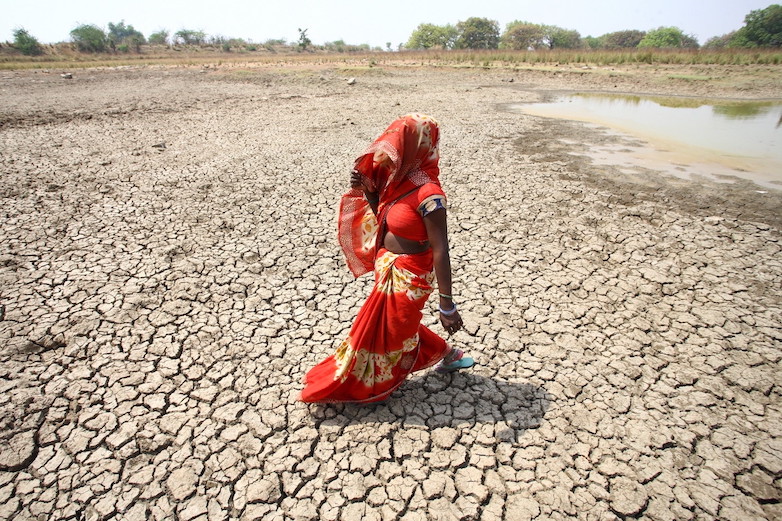As COP28 approaches, the World Health Organisation (WHO) and the global health community are amplifying their voices, emphasising the need for climate change’s impact on health to be at the forefront of negotiations. The imperative is clear: global discussions must expand their focus to encompass human health, leaving no room for excuses. Negotiators bear the responsibility for the well-being of our most invaluable asset—the health of populations worldwide.
Dr. Tedros Adhanom Ghebreyesus, WHO Director-General, asserts, “Prioritising health is not just a choice; it is the foundation of resilient societies.” He emphasises the necessity for leaders to deliver in Dubai, providing strong health outcomes that both people and economies urgently require. The conversation must shift to highlight the substantial benefits of bold climate action on health and well-being.
Climate Change’s Immediate Threat to Global Health
Recent extreme weather events worldwide offer a foreboding glimpse of the future in a rapidly heating world. The IPCC report warns that nearly half of humanity, about 3.5 billion people, lives in areas highly vulnerable to climate change. WHO reports a 70% increase in heat-related deaths among those aged over 65 in the past two decades. Only a dedicated effort to limit warming to 1.5 °C can prevent a future more severe than the current scenario.
The escalating frequency and severity of extreme weather events, from droughts to floods and heatwaves, strain healthcare infrastructure. Last year’s floods in Pakistan displaced 8 million people and affected 33 million overall. The World Bank forecasts that without bold action, climate change could displace approximately 216 million people by 2050.
Simultaneously, as the climate crisis jeopardises lives and livelihoods, global food systems struggle to sustain a growing population, and compromised water sources compound the challenges. Climate change catalyses a surge in infectious diseases like dengue and cholera. The time is ripe for decisive, collaborative action to mitigate the health impacts of the climate crisis and build a sustainable future.
As climate change presents an unprecedented challenge to health systems globally, strengthening them to be resilient, low-carbon, and sustainable is imperative. Failure to act swiftly will render health systems worldwide vulnerable to the overwhelming impacts of climate change.
Climate change is not a distant threat; it is a present danger affecting health on multiple fronts. The health community emphasises that climate change is already contributing to the spread of infectious diseases and vector-borne illnesses. Negotiators must comprehend that climate change is a direct threat to global health that can no longer be ignored or downplayed.
Integrating Health into COP28 for Sustainable Climate Action
Adapting health systems involves upgrading key interventions like vector control, epidemiological surveillance, and access to safe water and sanitation. Additionally, crucial is the training of health staff and aligning health systems with WHO’s operational framework for building climate-resilient and low-carbon health systems.
To mitigate the negative impact on health, the health community stresses the importance of reducing and stopping emissions. WHO attributes 7 million premature deaths annually to air pollution. Urgent mitigation measures, including transitioning to clean energy sources, are necessary to protect human health and create sustainable outcomes.
The health community recognises the role health systems play in contributing to emissions and advocates for greening the health sector. This involves decarbonising health systems, digitalising medicine, and implementing sustainable practices in hospitals and healthcare facilities to significantly reduce the 5% global emissions attributed to the health sector.
With over 1 billion people worldwide served by healthcare facilities with unreliable or no electricity, the health community calls for accelerating access to clean energy, particularly in low-income countries. WHO is working with partners to electrify healthcare facilities through renewable energies, harmonise medical supplies, and lead transformative change towards cleaner energy sources.
Addressing financial disparities in health systems is crucial. The health community calls for increased financing from new sources, urging divestment from and an end to subsidies for fossil fuels. The WHO-led Alliance for Transformative Action on Climate and Health (ATACH) focuses on realising COP26 goals by leveraging collective influence to advance climate-resilient health systems and identifying financing needs.
As the world unites at COP28, the health community calls for decisive action. Negotiators must recognise that climate action is health action, with failure to address this reality having profound consequences for the well-being of current and future generations.
The first-ever Health Day at COP28 aims to elevate the global profile of the climate and health nexus, integrating health within the climate change agenda. A record number of health ministers will be attending, emphasising the commitment to prioritise health in climate discussions. The Ministerial session will bring together global leaders to implement sustainable solutions, focusing on the crucial intersection of health and climate change.
The legacy of COP28 should be a commitment to a healthier planet, where health arguments for climate action lead to tangible results, ensuring a resilient healthcare infrastructure for the challenges of today and the uncertainties of tomorrow.


